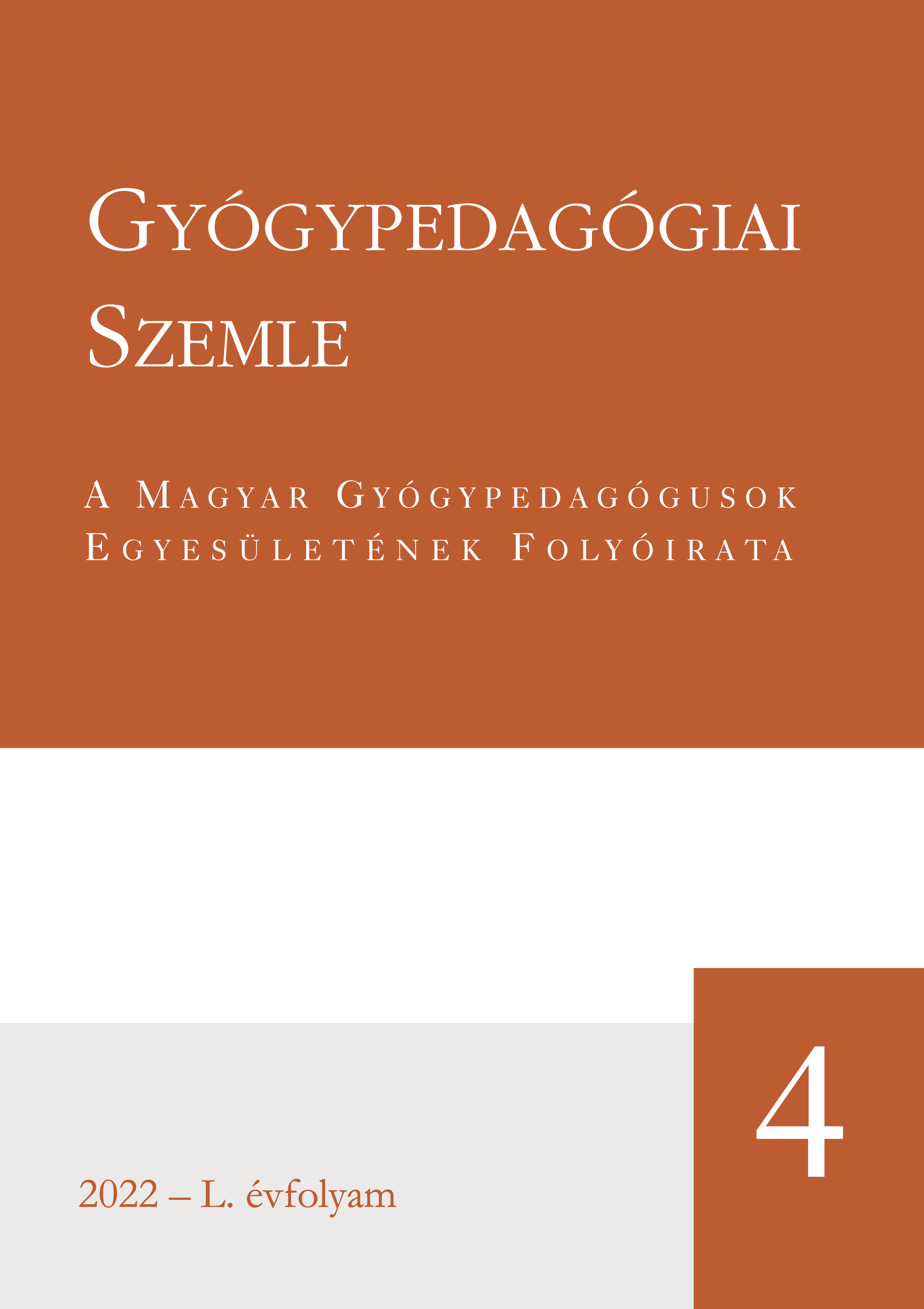Peer mentors in supporting secondary school students with autism. A systematic literature review
DOI:
https://doi.org/10.52092/gyosze.2022.4.1Keywords:
autism, secondary school, autism-specific support, peer mentoring, peer supportAbstract
Abstract
Background and Aims: There exist evidence for the effectiveness of peer mentoring for children and adults with autism. In mentoring, an individual or a group of individuals who have received prior training, support another person of roughly the same age and/or ability level, who lives with autism, systematically but without the direct participation of a professional. The present paper aims at exploring, via an analysis of the international literature, (1) the representation of peer mentoring of secondary school students with autism in the literature; (2) the roles and tasks of its relevant actors; and (3) its benefits and limitations.
Method: A systematic literature search was conducted using the ERIC and PUBMED databases in September 2022. Based on the inclusion and exclusion criteria, 11 studies have been selected and analysed from among 6054 search hits.
Results: Peer mentoring can be an effective element in the comprehensive support of secondary school students with autism. Planned in an individualised way and following the relevant methodological guidelines, mentoring can be beneficial and joyful for both the mentored student and their mentors. It can also enhance the development of the social and communication skills in both (group of) actors.
Conclusions: Although there exist systematic studies on peer mentoring of secondary school students with autism in the international literature, it seems necessary to explore the existing practices more thoroughly, to examine further their effects, and then disseminate the effective methodologies within service systems. This seems particularly topical in our country, where peer mentoring in secondary school care for students with autism seems to be implemented currently only on an ad hoc basis.
Keywords: autism, secondary school, autism-specific support, peer mentoring, peer support

